Speeches Shim
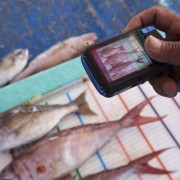
In partnership with USAID and The Nature Conservancy (TNC), Norpac and other nine companies have agreed to not buy (or sell) immature snapper and grouper from Indonesia through a fisheries improvement program (link is external). As part of the program, companies will share data, such as catch origin and fish size, with the Government of Indonesia so that it can make informed decisions about how to manage Indonesia’s fish supply. They will also institute more sustainable practices under TNC’s fisheries improvement program framework, one of the most stringent-- and thus impactful-- in the world.
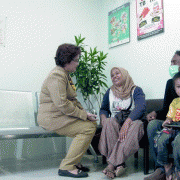
State-of-the-art diagnostics, rigorous procedures and compassionate community volunteers join to fight TB in Indonesia.
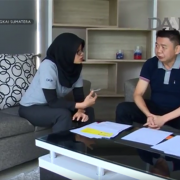
In Indonesia, the government is steadily opening up access to official data. Reporters like Marina Nasution from DAAI TV Indonesia Bingkai Sumatera take their role in communicating this information to the public very seriously. Last year, Marina attended training on investigative journalism supported by the United States Agency for International development (USAID) and Indonesia’s Alliance of Independent Journalists (AJI). At the training, she learned how to access public data, to understand its significance, and to incorporate it in her reporting.
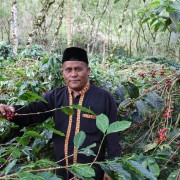
With help from USAID, through the LESTARI program-- which supports Indonesia to improve sustainable land use and conserve biodiversity-- farmers in the area are turning away from citronella and toward coffee, a more forest-friendly crop that doesn’t rely on clearing land for cultivation or burning wood for processing. The program has also helped farmers develop a coffee nursery, share knowledge about environmentally friendly farming techniques and secure legal access to the land. Over 650 farmers, including Mr. Yusdi, are now making a better living by growing coffee instead of citronella.
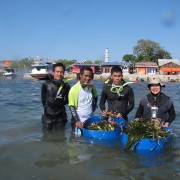
Over three years, with support from the United States Agency for International Development’s (USAID) Partnerships for Enhanced Engagement in Research (PEER), Rohani Ambo-Rappe and her team of students collaborated with Susan Williams from the University of California at Davis to address this challenge. They set out to discover, in part, which seagrass species grows the fastest and survives the longest in support of Indonesia’s first major seagrass restoration effort: to cover over 30,900 square meters, nearly the size of six football fields, in Sulawesi with seagrass.

Comment
Make a general inquiry or suggest an improvement.